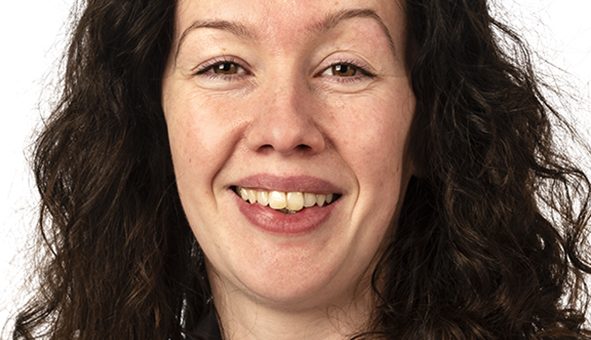Dr Philippa Borrill featured in Royal Society video to inspire a new generation

Dr Philippa Borrill explains the value of gene editing as a tool for developing more nutritious, sustainable and resilient wheat, in a new series of Royal Society videos featuring Professor Brian Cox.
John Innes Centre Group leader, Philippa outlines the case for this game-changing technology, in the latest instalment of Brian Cox School Experiment videos.
The Borrill group at the John Innes Centre focuses on understanding the wheat genome to improve the nutritional value of wheat grain.
In making the video Philippa’s group hosted a Royal Society-appointed film crew who spent a day at the John Innes Centre – investigating labs where gene edited wheat germplasm is generated. The video then follows Philippa in the greenhouses and the next stage of the experimental wheat before heading out to the Dorothea de Winton field trial station at Bawburgh.
To complete the segment Philippa visits the Royal Society’s London home where she is interviewed by Brian Cox about the ways in which gene-editing is accelerating the scientific mission to create wheat with higher nutritional value and greater resilience in the face of climate change.
“I’m really impressed with the final video, not only does it highlight the value of gene editing to a new generation of potential scientists, but it hopefully will also give some practical advice and guidance for students contemplating a career in research science,” said Philippa.
Philippa is one of several expert scientists interviewed by Brian Cox, Royal Society Professor for Public Engagement in Science, for the new series which launched this week.
As well as helping teachers bring exciting, creative, practical science to the classroom, the latest films are designed to equip students with skills and information on emerging jobs and industries being reshaped by scientific advances.
Aimed at students aged 11-14, the resources span topics at the forefront of global scientific research, including genome editing for sustainable crop production; ocean acidification, carbon capture and the loss of biodiversity; and machine learning and its use in cybersecurity.
Each topic is split into three videos. In the first, Professor Cox and a teacher will set up and teach students with a simple classroom experiment. Then the videos will explore how the science is developing and being used in academia and industry.
Professor Cox said: “The next generation of scientists will lead the way on finding new ways to tackle climate change, improve food security, and shape the evolution of artificial intelligence as it transforms society. I hope these videos will be an invaluable tool for teachers, embedding experimental inquiry into lessons in the context of some of the most critical issues of our time and introducing students to some of the groundbreaking technologies being designed to solve them.”
Downloadable resources for the three topics are available on the Royal Society’s website and YouTube channel, the STEM learning UK resource library, and the Times Education Supplement (TES) resources pages.
The Royal Society is a self-governing Fellowship of many of the world’s most distinguished scientists drawn from all areas of science, engineering, and medicine. The Society’s fundamental purpose, as it has been since its foundation in 1660, is to recognise, promote, and support excellence in science and to encourage the development and use of science for the benefit of humanity. http://royalsociety.org
